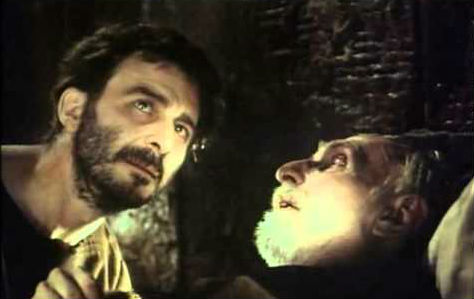
San Juan de la Cruz is a character,
along with Philip II, I have always wanted to make a film about. I
had a large amount of accumulated material on him and a very clear
idea about the story- line: the nine years he spent in prison. That
is why I wrote the script quickly.
"La noche oscura" (The Dark Night
of the Soul) is a film about mysticism, at least in a religious
sense. I say this because, in my opinion, there is a secular
mysticism that can be present in the film; there is room for it but
not for the other type of mysticism, i.e. the formal one. In this
film I try to approach the inner process of poetic creation of Juan
de la Cruz - a lofty poet who, after four centuries, is still a
popular phenomenon.
Nowadays, with the general ongoing
effort in Europe to search for our identity, looking back at a poet
like him doesn't imply taking refuge in the past or stepping back
to deal with old subjects, but quite the contrary. It is with San
Juan de la Cruz that we truly enter into that search for our
identity and therefore into our present [...]
I think that one of the most
fascinating things about San Juan de la Cruz is the idea that the
author isn't the author but the sovereign author - to use a
"Calderonian" expression so to speak (that is one which the Spanish
classic playwright Calderon de la Barca might have used himself)
[...]
At first I had another idea in my
mind; to work on the imagination of San Juan, in a far more
flamboyant sense, but later on I thought that doing so was engaging
in a frivolous game that wasn't in line with the character. Because
of that, I have tried to use the least possible narrative elements
to tell this story [...]
What I find most attractive about
mysticism is the capacity it possesses to probe deeply into the
human soul, by resorting to in-depth reflection and relying on an
atmosphere that each human being must create as it is not generated
spontaneously. One thereby reaches that state of "silence", which
is such a beautiful word. After all, San Juan de la Cruz himself
speaks about "silent music" in one of his poems.
CARLOS SAURA